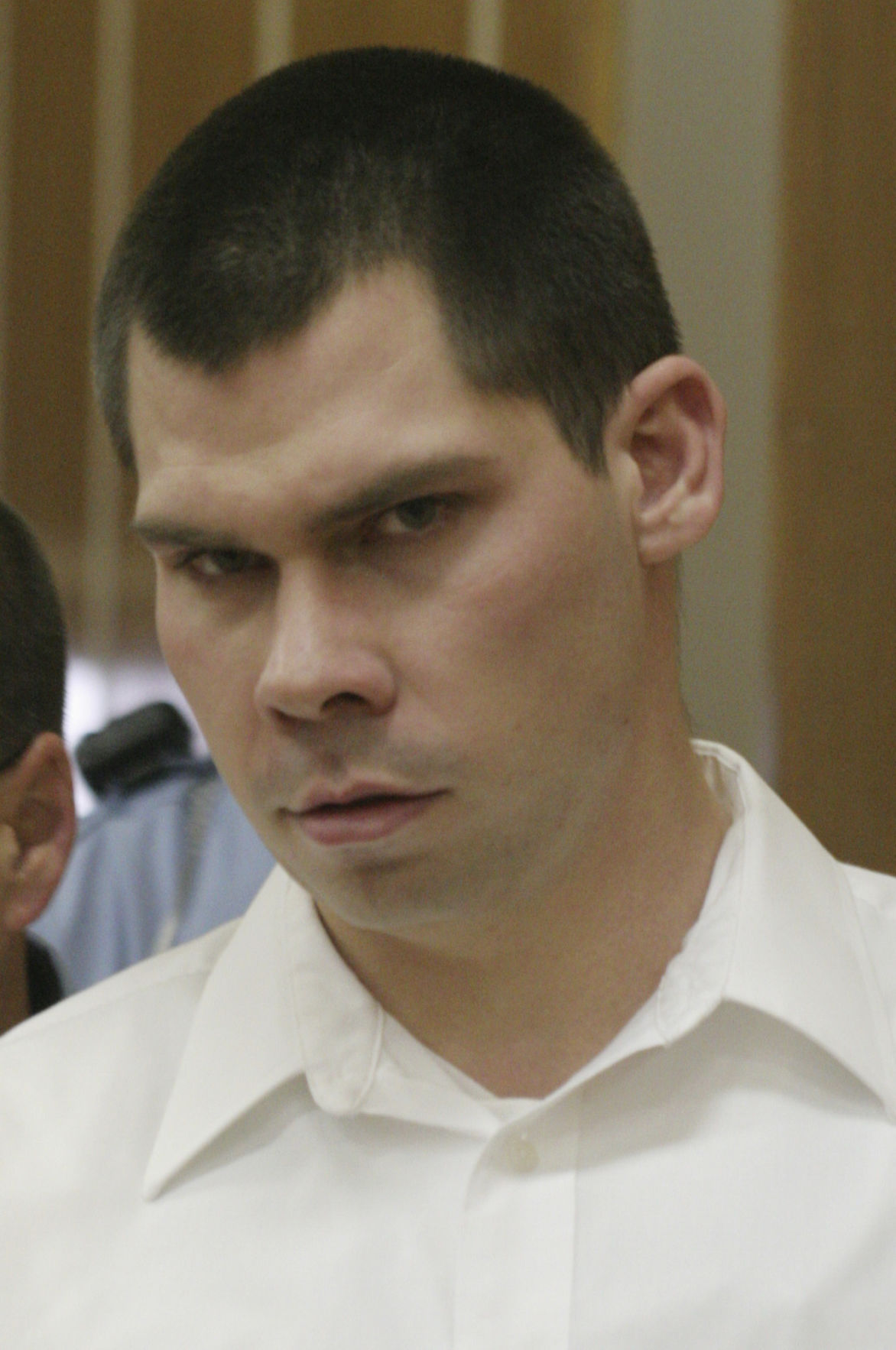TOPEKA, Kan. (AP) — A south-central Kansas man’s attorneys asked the state Supreme Court on Friday to spare him from execution for the murder of a college dance team member because of questions about whether he is developmentally disabled. The
TOPEKA, Kan. (AP) — A south-central Kansas man’s attorneys asked the state Supreme Court on Friday to spare him from execution for the murder of a college dance team member because of questions about whether he is developmentally disabled.
The court heard arguments in an appeal from Justin Eugene Thurber, who was sentenced to die for the January 2007 rape and strangulation of Jodi Sanderholm, a 19-year-old Cowley College student. The death sentence came after the trial judge rejected a defense request for a hearing on whether Thurber is developmentally disabled.
The trial judge concluded that Thurber’s attorneys at the time had failed to present enough evidence to warrant such a hearing under a section of the state’s death penalty law barring the execution of defendants with “significantly subaverage” functioning. The U.S. Supreme Court later ruled that executing someone with even a mild intellectual disability violates the U.S. Constitution’s protection against cruel and unusual punishment.
“If he’s in a protected class, he cannot be executed,” Reid Nelson, a state capital appeals defender, told the justices, suggesting that the court must impose a sentence of life in prison without parole instead.
The court isn’t expected to rule for at least several months. The 34-year-old Thurber and nine other men convicted of murder are on Kansas’ death row, some of them for crimes dating back to 1996. Kansas enacted its current death penalty law in 1994 and has not executed anyone since it hanged serial killers James Latham and George York in June 1965.
The slow pace of capital murder cases in Kansas has frustrated victims’ families, and past rulings overturning death sentences led to unsuccessful attempts to oust most of the court’s justices in the 2014 and 2016 elections.
“At some point, it needs to come to an end,” said Brian Sanderholm, the father of Thurber’s victim, who attended the arguments with other family members. “I’ve come to (be) at ease with it in my mind that I don’t think it’ll happen, that it’ll end up done, in my lifetime. I will probably go to my grave and it will still be an open wound.”
Jodi Sanderholm was a pre-pharmacy student at Cowley College and a member of its Tigerette dance team. Two other team members said Thurber, then 23, had stalked them. And a former girlfriend of his who sought a restraining order said he followed and texted her.
Authorities said Thurber kidnapped Jodi Sanderholm after following her from a dance practice and took her to a rural area, where he raped, beat and strangled her. He disposed of her car in a lake.
Sanderholm’s body was found in a wildlife area about 45 miles (72 kilometers) southeast of Wichita, and authorities used DNA evidence to tie Thurber to the crimes.
Thurber’s attorneys for his capital murder appeal have raised more than two dozen legal issues, but much of the Kansas Supreme Court’s hearing Friday focused on whether he should have had a hearing about his developmental state.
The trial judge rejected the hearing request after a defense witness testified that he would not describe Thurber as mentally disabled. During Friday’s hearing, Assistant Solicitor General Kristafer Ailslieger noted that Thurber graduated high school and attended Cowley College classes.
“That ship has sailed,” Aislieger told the justices.
Cindy Sanderholm, the victim’s mother, said during a break in the hearing that Thurber has written several letters to her and others while in prison, asking for help in finding “the real killer.”
“He is competent enough to reach out to people and write letters,” she said. “He knows what he is doing.”
But Nelson, the state capital appeals defender, said Thurber’s IQ has been estimated in the 70s or 80s, he read at a sixth-grade level in college and his parents testified he would have had trouble living on his own.
“Here is Justin with, quite frankly, a whole raft of adaptive deficits,” Nelson said.
———
Follow John Hanna on Twitter at https://twitter.com/apjdhanna .


